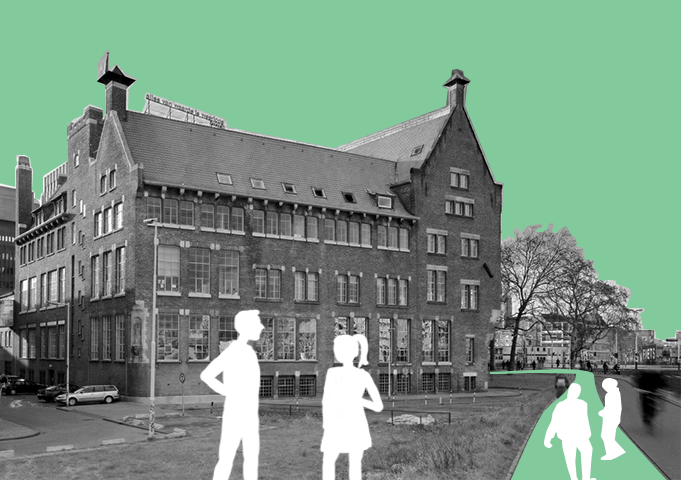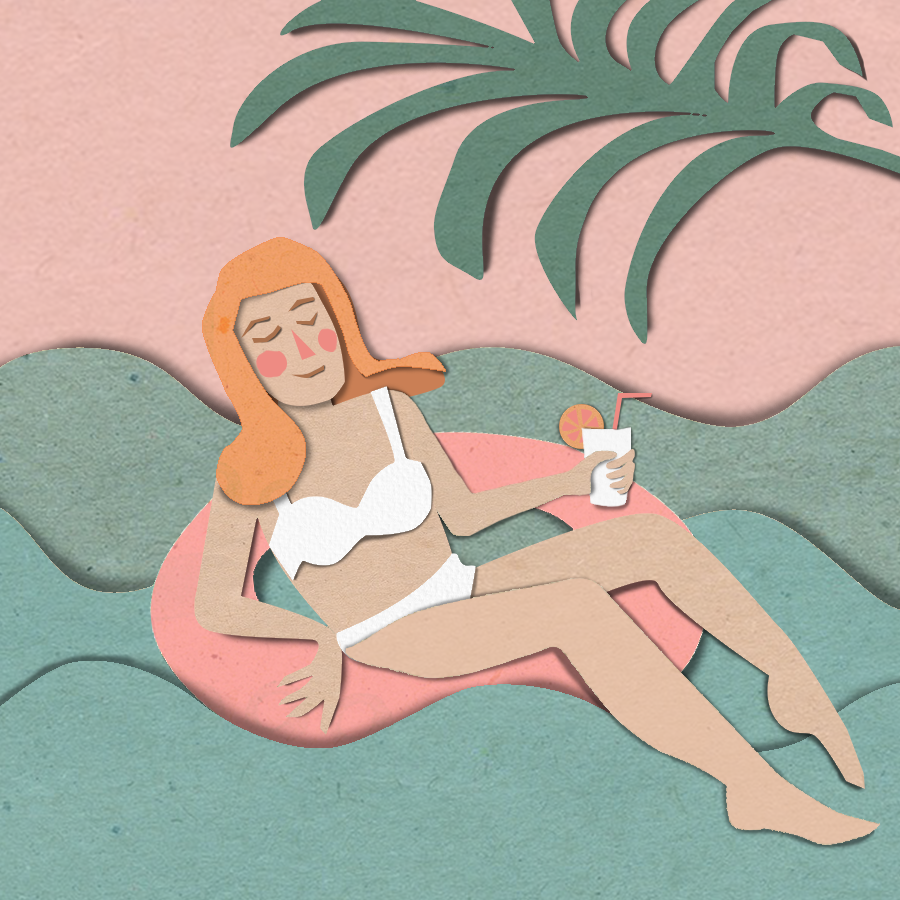Writing an article days 32-38
- Katja

- 29. Mai 2018
- 6 Min. Lesezeit

The Netherlands- an elbow society?
When arriving to the Netherlands, I painfully noticed how straight forward and driven the Dutch are. As I was looking to fnd my way, I got almost run over by tall, neatly dressed businessmen with perfectly slicked back hair shouting Godverdomme! at me for standing in their way. I have never seen people so eager to get to work at six o’clock in the morning. Trying to make my way to the train I realized, that elbows and if necessary swearwords are part of the Dutch etiquette. I silently said goodbye to the rule ladies frst, as a young man elbowed me in the ribs to take the seat I was going to settle down on. To complete my welcome, the Netherlands hugged me with cold windy fngers and sprayed tiny needles of rain into my exhausted face. It was a good welcome, since really it could only get better from there. And it did. A few years later I found myself in the train, smiling at the beautiful tulip felds and realizing, that right there in a full train, as an elbow was piercing my rips I felt like I was coming home. No matter how crude the Dutch seemed to be upon my arrival, I have gotten to know them as friendly and open individuals. It is a special kind of friendliness, which, mixed with an almost brutal honesty, makes it feel genuine and real. Tere are certain behaviors I noticed over the years, which are very funny to me as a foreigner. One of them is the way the Dutch greet each other, which is so drastically different for men and women, that it always makes me laugh internally.When Dutch women greet each other, they do so by kissing the air besides each other’s cheeks three times, from lef to right. As they say goodbye, they pull their faces into sweet smiles chanting ‘doooiee dooiiee’ in a very feminine, high pitched voice. Men on the other hand greet and farewell each other with a loud ‘Hooii’, which seems to be coming from the depths of their stomachs, while smashing on each other’s backs. As if this ‘man-hug’ is not enough outburst of masculinity, they will make sure to not hold each other too close or for too long. Just to reassure others and mainly themselves of their heterosexuality. Not that they frown upon gays. Te Dutch society is very accepting, and discriminating someone based on their sexuality, nationality or beliefs is illegal and socially inacceptable. But even though the Netherlands are a very progressive country, I have also encountered people who were less tolerant. I was surprised, since I’ve always naively imagined the Netherlands as a magical, rainbow colored country. Tere seems to be quite a difference between big cities such as Amsterdam, Rotterdam and Utrecht in comparison to smaller towns. One time, in the supermarket of a small town, an older man shouted at me and my friend for speaking in another language. Once, people on the train made fun of ‘those stupid foreigners’ only to freeze in shame when I confronted them in Dutch. But aside from these incidents, I was usually welcomed with open arms, or elbows for that matter.

The Netherlands for foodies
The Dutch cuisine is not for the health- conscious people among us. Te Dutch like deep-fried snacks and other greasy delicatessens. At various corners you will fnd stores that offer snacks with funny names like bitterballen, frikandel, kaassouflee and more. Fries is also a specialty in the Netherlands, at some snack bars they are prepared from freshly cut potatoes and offered with a large variety of different sauces and toppings. Tey have patatje oorlog (freely translated: war fries), which consists of fries topped with mayonnaise, ketchup and raw onions. Maybe the name describes the war of different flavors fghting for attention? Or the fght of the fries for air because they are drowning in sauce? Who knows! Tere is also sauce made from peanuts, because peanuts are another thing the Dutch like. Pindakaas (peanut cheese), which is the Dutch word for peanut butter, is according to them an invention by the Dutch, and everyone who enjoys American peanut butter deserves a kick in the peanuts with a wooden slipper. Tey also like to soak their teeth in caries inducing things. Pancakes and wafes are enjoyed in all shapes and sizes. A typical Dutch thing are poffertjes, which essentially are tiny pancakes topped with powdered sugar, butter or chocolate sauce. Ten you probably already came across stroopwafes which taste heavenly when freshly made. Stroopwafes are thin wafes flled with caramel syrup. At special occassions the Dutch like to eat Tompoucen: cream flled cakes which are impossible to eat without making a mess. No one really knows how to eat them properly. For celebrations such as Kingsday and liberation day, Toumpoucen will be orange to show patriotism

Language
Since the Netherlands are such a small country, they need to communicate outside of its borders. At school the students learn German and English. And at University the number of international students is constantly increasing, which is why more and more programs are held in English. Most young people are therefore completely fluent in English, and as a foreigner it is possible to study, work and live in the Netherlands without ever needing to learn the language. I still think it is very important to learn Dutch, if you are staying for a longer time. Otherwise a whole aspect of the culture gets lost in translation. Also, I have seen, that even though national and international students study together, they keep quite separated in their social interactions. Probably because even though most people are fluent in English, they still prefer talking in their mother tongue in their free time. Most Universities offer Dutch language courses free of charge. These are mostly not very elaborate, but they will get you going on the basics. If you want to improve your level, you can apply for free courses the government offers to immigrants. Courses are great, but make sure you practice everything you learnt in real life, since that will help you the most. In the process of learning Dutch, you will have to keep reminding your surroundings of your aim to learn the language, because they automatically switch to English if someone is not fluent. This is very polite but can make it difficult to stick to your practice. I never encountered much negativity, when it came to my accent. Really, I think the Dutch are very positive and ready to help if someone learns their language.

Homesickness
No matter how much you love your new life in the Netherlands, there will be times when you miss home. Here are some tips to battle homesickness.
1. Food. Nothing will give you a better feeling of being home than eating your favorite dish. Look for stores that may carry the ingredients, or if they do not exist in the Netherlands, ask a friend or family member to ship you some. Invite your new friends and share this part of your roots with them!
2. Skype. Schedule regular skype dates with your friends and family. When going away you will always tell them you’ll call or write. But too ofen you or your friends and family will forget to take the time. Scheduling a time to skype or call works better, especially if you need to reach a different time zone.
3. Homies. Find people from your country. Even if those are people who, at frst sight seem to have nothing with you in common, they are your homies afer all! And it feels amazing to talk in your mother tongue to someone who gets it. Someone who understands why you do or say certain things because it is the way you do things over there. And fnally, you can have a good laugh about the strange things Dutchies do. Be careful though to not only hang out with people from your country. You don’t want to cheat yourself out of your amazing experience abroad by being stuck in a bubble. Invite your friends at home to come visit you. You can show them around and introduce them to your new friends. Not only will it be a great time for them, but they will get what or who you’re talking about. It will give them an insight on how your life looks now, and will make it easier to picture the situation you are in. And you get the bonus of seeing the place you moved to with fresh eyes again.
4. Books. Books are great at teleporting you to other places. Reading a book which reminds you of home, is like an imaginary mini trip to your country. Dutch libraries are incredibly well equipped with foreign literature, so it shouldn’t be too difficult to find a book in your language. TV shows, movies or music are great too.





Kommentare